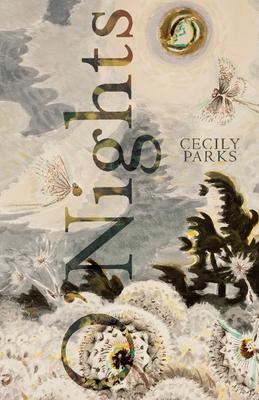"In Cecily Parks' beautiful poems, the natural world teeters between being and seeming--the seeming a simulacrum projected onto the world by a mind's yearning, taxonomy and dread. Deeply metaphysical, and deeply attentive to our spiritual as well as physical uses and abuses of nature, O'Nights implicates language's --indeed, lyric poetry's--sad role in this endeavor."--Susan Wheeler
In O'Nights, Cecily Parks constructs stunning manifestations of a modern Thoreauvian wilderness, investigating how the natural world gives shape to the self, body, and emotions. These lyrical, transcendental poems study the duality of nature's feminine and masculine identities, and in its simplicity, offers a space where humankind truly belongs.
From "Bell"
This progress, as in the wind-scalloped snowmeadow
pretending to be moon. This love that sets us scrambling
over the map's last ridge, our red hoods bright
in shrunken sky. This metallic weather in which we
are the ore. This alder. These crimson-tipped willows
reverberating next to a river of turquoise ice. This
following the deep tracks of one coyote stepping
where another has stepped. This wilderness
that we trespass, burning like berries in the juniper
and becoming the air in the belfry.
Cecily Parks is the author of the chapbook Cold Work (Poetry Society of America, 2005) and the collection Field Folly Snow (University of Georgia Press, 2008), which was a finalist for the Norma Farber First Book Award and the Glasgow/Shenandoah Prize for Emerging Writers. Her poems have appeared in Boston Review, Kenyon Review, Orion, Tin House, Virginia Quarterly Review, the Yale Review, and elsewhere. She lives in Cambridge, Massachusetts.
